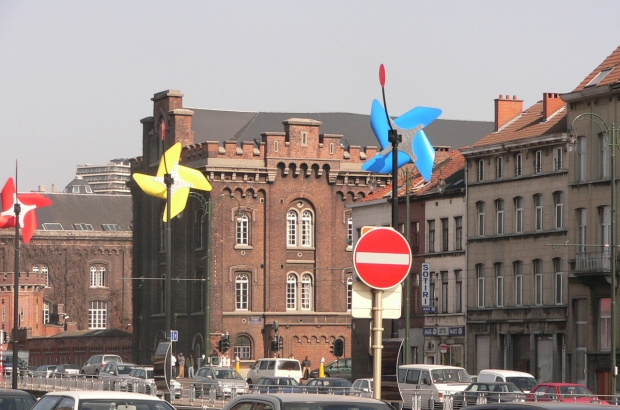- Daily & Weekly newsletters
- Buy & download The Bulletin
- Comment on our articles
Radicalisation in Molenbeek: What is going on?
Since the Paris terrorist attacks last Friday, all eyes are on Molenbeek. It looks increasingly like the shooters used the Brussels commune as a logistics base, a place to hide and to arm themselves.
It is not the first time that Molenbeek has been linked to terrorism. The commune was also named in connection with the terrorist group that was apprehended in Verviers and with the shooting at a Jewish supermarket in Paris last January, with the recent botched Thalys attack and with the shooting at the Jewish Museum in Brussels last year. It is known as the Jihadi capital of Europe.
So what is going on?
Molenbeek-Saint-Jean, across the canal from Brussels city centre, is one of the poorest municipalities in Belgium. It was always working class, with families living close to the industry for which it was known. With a flow of immigration from North Africa and Turkey in the 1950s, many of the original families moved out, and migrant families moved in.
Now Molenbeek – and especially the area known as Vieux-Molenbeek – is seen as a monoculture. It has a distinct Arab feel to it, which many Belgians find discomforting. It is known for harassment and petty crime.
Attempts at gentrification have never really caught on. In recent years, trendy companies such as advertising agencies have moved out – citing safety as the main reason.
More than 20 years ago, Johan Leman, a well-known social worker, warned Brussels that Molenbeek would become a hotbed for disgruntlement. He spoke of discrimination, poor schooling and a general disinterest in Molenbeek’s youngsters, leaving them frustrated.
Politically, Molenbeek has been dominated by the French-speaking socialists for years, with the prominent politician Philippe Moureaux its mayor. Moureaux was a great champion of the North African population in his municipality, but he was often accused of brushing aside its problems.
Three years ago, Moureaux was succeeded by the liberal Françoise Schepmans. Now the parties are arguing about who is most to blame for what has gone wrong. Schepmans points the finger at her predecessor for Molenbeek’s radicalisation. But she has been blamed for not doing enough to stop young men from going to fight in Syria.
The federal minister of home affairs, Jan Jambon (N-VA), has pledged to “clean up” Molenbeek. One of the issues under discussion is how policing is structured in Brussels. The capital has six police zones and 19 communes (and mayors), making Brussels the “weakest link,” said Jambon, in European counter-terrorism.



















